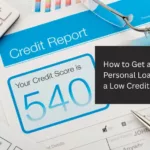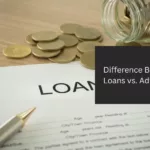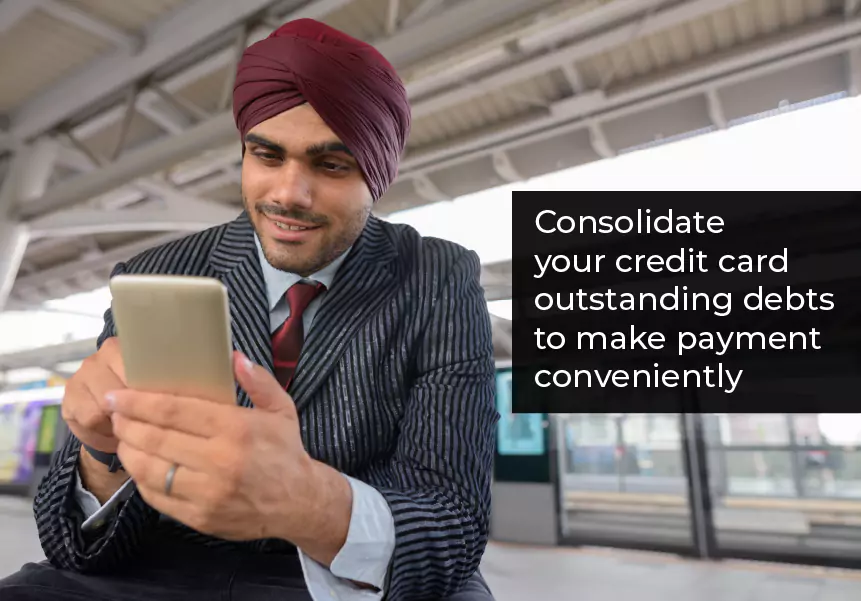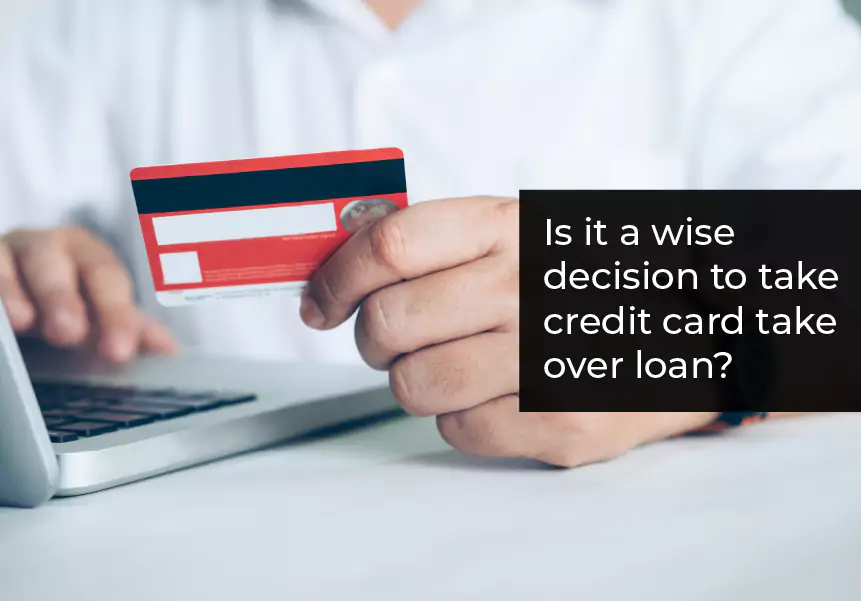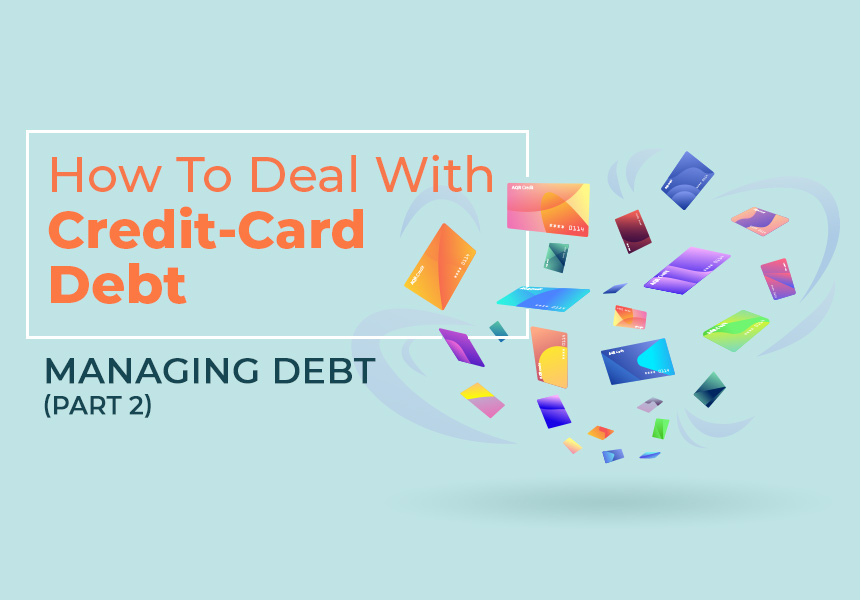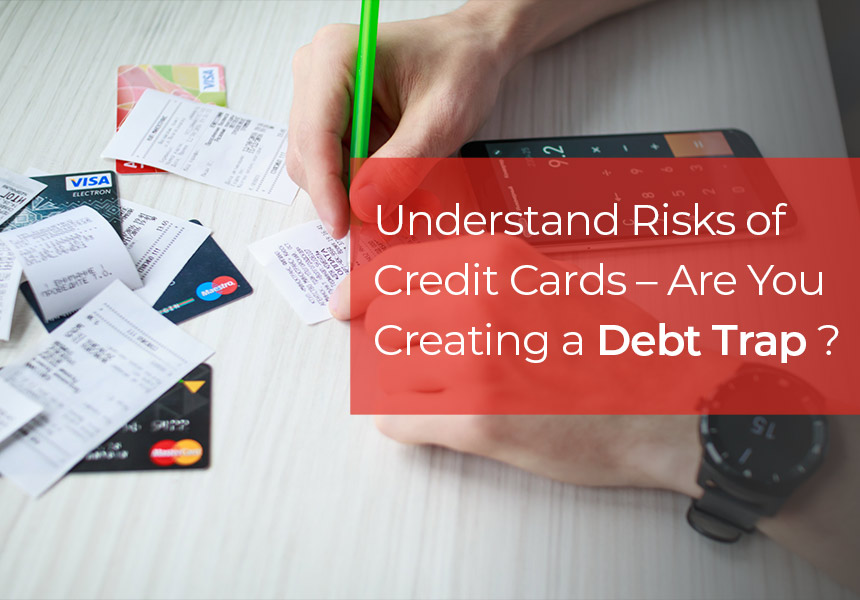
Every form of debt has its pros and cons. Credit card is an instrument that, when used prudently, could help you build your credit worthiness. It’s an arrangement where you get to spend freely until you reach your credit limit. This makes it easy and tempting to spend money that you don’t have. You could end up overspending each month and fall into a credit card debt trap. Before getting into details lets understand how credit cards and their basic working.
How do Credit Cards Work?
Credit cards are a form of debt with a pre-approved credit limit. This limit is set by the lender based on your financial creditworthiness. There is a monthly billing cycle for every credit card. Once the statement is generated, you’re expected to pay the due amount in a specified time period (generally, a month).
Credit card statement lists two amounts. One is the minimum amount due and the other is the total outstanding amount. You can make payment for the minimum amount within the stipulated time mentioned in the statement.
If the payment is made for the entire outstanding amount, then you do not have to pay any interest.
If you pay just the minimum amount or make no payment at all, the lender will charge interest on the outstanding amount until you repay the total amount. Other charges, such as late payment fees, may also be applicable.
If you’ve used the credit card to withdraw cash, you will be charged interest on the amount withdrawn. The interest rates charged on credit cards are as high as 24 – 36% annually.
What Happens When you ONLY Pay the Minimum Amount Due on Credit Card?
Generally, people are unaware of the consequences of making minimum payment on their credit cards. Here are some of the repercussions it may have on your financial management.
1. You’ll be trapped in debt for a long time
When you decide to pay only the minimum amount, you carry forward the outstanding amount to the next month. Usually, the minimum amount is 5% of the total amount, so 95% of the bill is carried forward to the following month.
The lender will charge 2% – 4% interest per month on the due amount and late payment fees is applicable if you miss out on the date scheduled for the minimum payment. If you continue to pay only the minimum amount every month, you will be trapped in a debt for a very long time.
Your credit card debt amount remains unpaid as the outstanding amount keeps getting accumulated. This way, your debt will take months or years to pay off.
2. You’ll End up Paying More Interest
One of the advantages of credit cards is that if used wisely, you can get interest-free credit for 30–50 days. This is not possible with any other form of debt. But if you are unable to make timely payments and continue paying only the minimum dues, credit cards could attract 24 to 36% interest rate per annum.
3. Your Credit History and Credit Score will Take a Hit
Late payment of any debt causes a major setback to your creditworthiness. All your late/missed payments are recorded in your credit report and this affects your credit score. A low credit score will lower your chances of getting loan approval at a good interest rate in the future.
How Does Minimum Payment on Credit Card Lead to Debt Trap?
Let’s understand how your debts will accumulate if you make just the minimum payment:
Here’s an example –
- Date of Transaction: 01/01/2020
- Transaction Value: ₹1,000/-
- Statement Date: 05/01/2020
- Bill Due Date: 25/01/2020
- Minimum Amount Due: ₹50/- (5% of Rs 1,000)
- Total Amount Due: ₹1000/-
- Rate of Interest: 3% per month (assumed)
If you pay ₹1000/- on/before 25/01/2020, your total outstanding balance becomes zero, and no interest is charged.
But if you decide to pay only ₹50/-, you’ll be charged 2-3% interest on ₹50/- for the number of days the amount remains unpaid.
So, if you pay the amount on 01/02/2020, you’ll be charged 3% for 30 days. In addition to the interest, the lender may charge late payment fees or any other penalties.
How can you Avoid Falling into the Credit Card Debt?
Getting out of a debt trap can be difficult. Here are some of the ways how you can avoid falling into one.
- You must use only what you can repay. Plan your expenses to prevent overspending on your credit cards.
- Discipline yourself into making timely payments on your credit cards. Set reminders or use the auto-payment facility.
- Credit cards run several schemes and sale round the year. Make sure you evaluate the terms carefully before availing such offers.
- If due to some reason you do not have funds to pay your bill, seek help from family or friends, but don’t make it a habit.
- A lot of digital lenders provide option to balance transfer credit card to personal loan. These loans are available at half the interest rate of Credit Card. You not only get a longer tenure but opportunity to save on instalments.
- There is no limit on the amount of payments you can make towards the outstanding due. If you have just paid the minimum amount due and you have extra funds available, do not wait for the next due date. Make the payments as and when funds are available as the interest is charged on the outstanding amount. If you clear maximum outstanding amount you will be able to save considerably on the interest.
Conclusion
Credit cards are beneficial but can cause substantial financial damage when not used responsibly. Therefore, before you plunge on a shopping spree remember to be cautious and stick to your budget.
Are you struggling with credit card outstanding? LoanTap offers Credit Card Repayment Loan to help you balance transfer your credit card outstanding to personal loan and help you clear your credit card dues.
Apply Now Using Our Instant Loan App on : Google Playstore / Apple App Store
Further Reading



